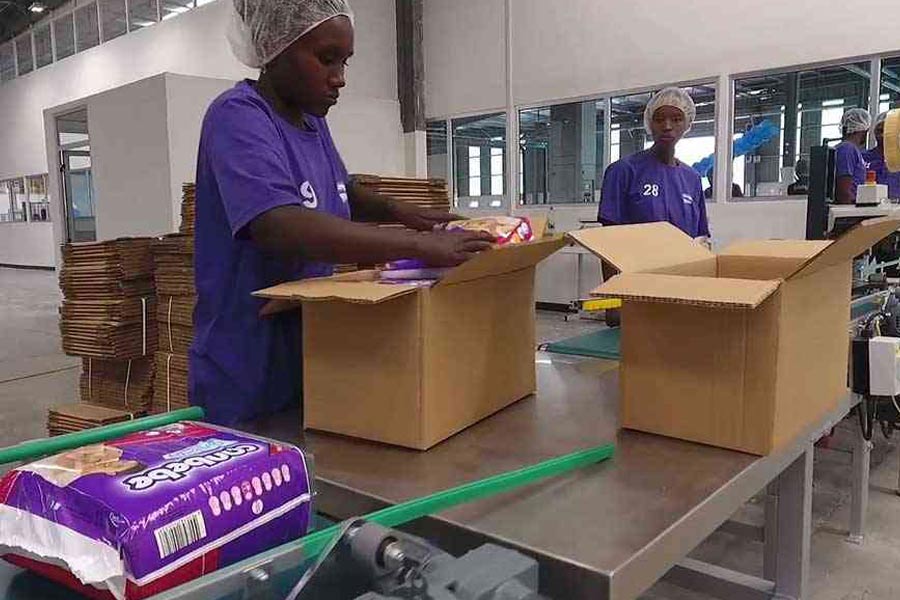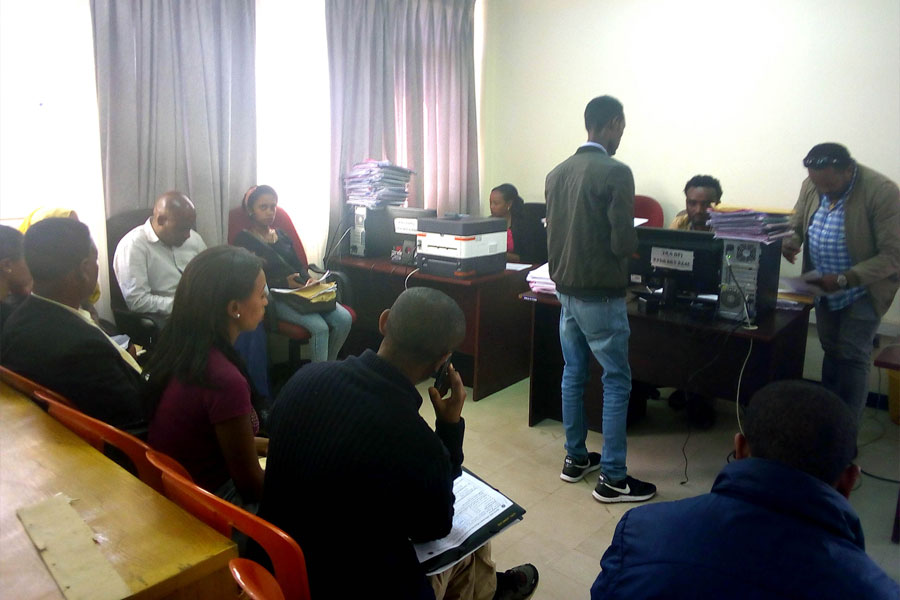
Commentaries | Jun 21,2025
A significant decline in the production of non-alcoholic beverages has hit the bottling industry owing to changes the federal government made on excise tax last year.
The 11 percentage point increase passed by Parliament, surging excise tax the industry pays to 25pc, has affected sales volumes and eroded the companies' bottom lines, a study conducted by the Food, Beverage & Pharmaceutical Industry Development Institute found out. Productivity of non-alcoholic beverages across the industry plummeted by 20pc, the study disclosed.
Companies bottling non-alcoholic beverages have been bewailing a surge in excise tax and spiking prices for raw materials, resulting in a significant production decline. Beverage companies such as East Africa Bottling, MOHA Soft Drinks Industry, and Melkam Moringa are impacted. Excise tax – often described as "sin tax" – is levied mainly on luxury products that affect health, such as alcohol, sugary foods, salt, tobacco and beverages.
The industry is pressured due to double taxation, as the beverage companies pay the excise tax for raw materials and at points of sale.
Double taxation is not particular to the beverage industry. Products from the beverage companies may cause concern to health and fall under the excise tax category, but it is reasonable to review the rates considering their contributions to the economy and employment, according to Dawit Tadesse (PhD), a tax expert.
Abdiwaq Tamene leads the beverage processing department at the Institute, which conducted the study. His main concerns are the underlying impact of the excise tax on employment.
According to surveys carried out by the Institute, the beverage industry employs 6,000 people, providing an indirect livelihood for over 100,000 people in the value chain.
East Africa Bottling S.C., bottlers of Coca-Cola for over half a century, suffers from a 15pc fall in production. The company, which produces 800 million bottles of soda annually, paid two billion Birr in excise and corporate taxes last year.
The industry's woes do not stop here, however. Severe shortages in foreign currency and raw materials such as sugar in the domestic market and surged prices overseas have impaired the bottlers' capability for optimum production.
Melkam Moringa bottling plant, located near Sendafa, 35Km north of Addis Abeba, has been unable to surpass 10pc of 140 million litres in annual production capacity. Established by Zebym Trading Plc with a 200 million Br investment, the company struggles to navigate a market traditionally dominated by international brands.
"It's impossible to compete with Pepsi and Coca-Cola," Samuel Addis, a finance manager at Zebym Trading, told Fortune. "They've been dominant in the market for decades."
The experience is no different with MOHA Soft Drinks Industry S.C., bottlers of Pepsi Cola. The company is struggling to keep up with rising costs for raw materials such as bottle caps, escalating overnight, according to Mulugeta Mekonen, general manager of Moha's Tekelehaimanot plant.
"We're importing sugar as there just is not enough available in the domestic market," Nigus Alemu, legal counsel and communications director at East Africa Bottling, told Fortune.
Despite the pressure squeezing bottlers' margins, the industry is too timid about changing retail prices, fearing that demand could drop.
Industry leaders hope that the results of the study, submitted to the Ministry of Trade & Industry, will get the attention it deserves. They will only find the response from the officials at the Ministry, who confirmed they had received the study, disappointing. The mandate to review excise taxes is with the Ministry of Finance.
"We'll forward it to the Ministry of Finance," said Alemu Lobe, director of agro-processing and pharmaceuticals at the Trade Ministry.
His counterparts at the Finance Ministry are awaiting the study but reluctant to promise anything.
"It's too early to decide anything," said Mulay Weldu, head of the tax advocacy directorate at the Ministry. "Zebym Trading's request, in particular, needs further interpretation from our legal office."
Managers at Zebym Trading have appealed to the authorities to be exempted from the excise tax as they source their raw materials from the domestic market.
PUBLISHED ON
Jul 18,2021 [ VOL
22 , NO
1107]

Commentaries | Jun 21,2025

Fortune News | Dec 30,2023

Radar | Jan 03,2021

Agenda | Nov 20,2021

Viewpoints | Jan 27,2024

Radar | Jun 12,2021

Viewpoints | Jan 05,2019

Editorial | Nov 23,2024

Radar | Apr 13,2019

Radar | Nov 02,2019

Dec 22 , 2024 . By TIZITA SHEWAFERAW
Charged with transforming colossal state-owned enterprises into modern and competitiv...

Aug 18 , 2024 . By AKSAH ITALO
Although predictable Yonas Zerihun's job in the ride-hailing service is not immune to...

Jul 28 , 2024 . By TIZITA SHEWAFERAW
Unhabitual, perhaps too many, Samuel Gebreyohannes, 38, used to occasionally enjoy a couple of beers at breakfast. However, he recently swit...

Jul 13 , 2024 . By AKSAH ITALO
Investors who rely on tractors, trucks, and field vehicles for commuting, transporting commodities, and f...

Jun 28 , 2025
Meseret Damtie, the assertive auditor general, has never been shy about naming names...

Jun 21 , 2025
A well-worn adage says, “Budget is not destiny, but it is direction.” Examining t...

Jun 14 , 2025
Yet again, the Horn of Africa is bracing for trouble. A region already frayed by wars...

Jun 7 , 2025
Few promises shine brighter in Addis Abeba than the pledge of a roof for every family...